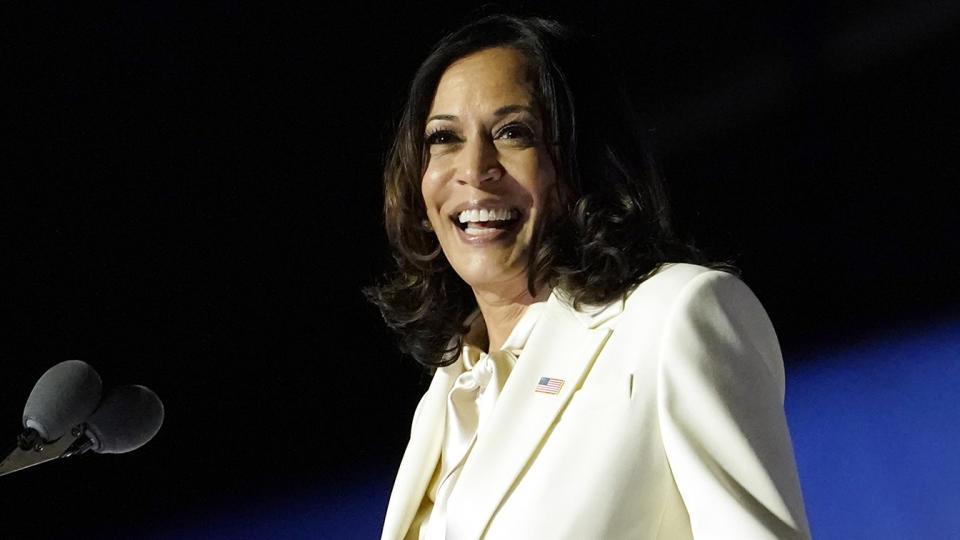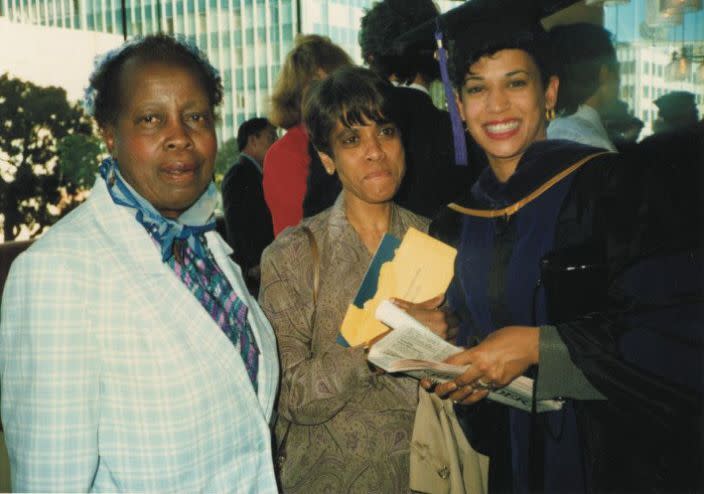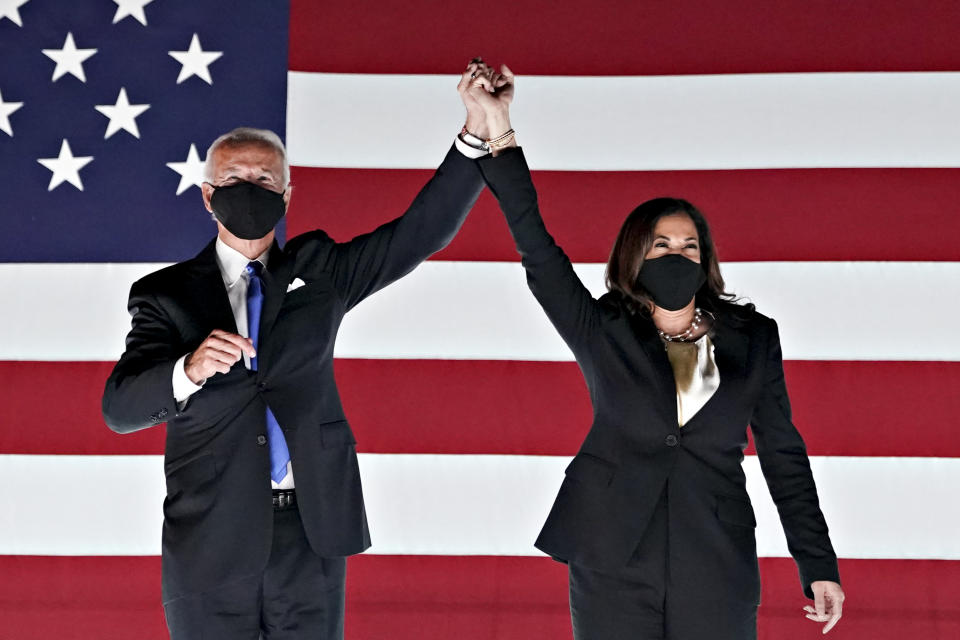Kamala Harris, shattering racial and gender barriers, makes history as first woman vice president
Sen. Kamala Harris made history three times Saturday as the first woman, first Black person and first Asian American to be elected to the vice presidency, according to the Associated Press, which called the race.
Harris’s election is a breakthrough for the Democratic Party. Several Black lawmakers told Yahoo News before Election Day that her elevation will serve as an inspiration for minority youth around the country.
“This represents a real sea change in how Black women will be viewed going forward in terms of our electability and our ability to deliver on the promise that is America,” said Rep. Terri Sewell, the first Black woman to represent Alabama in Congress.
New Jersey Sen. Cory Booker, a close friend and colleague of Harris’s, told Yahoo News the cultural impact of her win may be underestimated.

“This is culturally more powerful than, I think, many really understand — what it’s going to mean for four-plus years to have her daily in all of our lives,” said Booker.
Joe Biden’s August announcement that Harris would be his running mate energized his supporters. In the day that followed, the Biden campaign raised $26 million, a historic haul for the already flush campaign.
Those who pushed Biden to select Harris described her as a whip-smart, difficult-to-pin-down moderate choice who would not turn off Republican voters looking to defect from President Trump. That characterization did not stop the Trump campaign — and Trump himself — from painting Harris as a socialist, a label she rejects.
Harris, 56, was born to Donald Harris, an economist and Stanford University professor originally from Jamaica, and Shyamala Gopalan, an Indian immigrant and leading cancer researcher, in Oakland, Calif., in 1964.
As a teenager, she and her sister moved to Montreal to live with her mother after her parents divorced. She attended high school in Canada and returned to the States to attend Howard University, a historically Black school that was a formative experience for Harris. She led Howard’s debate team and became an active member of Alpha Kappa Alpha, a historic Black sorority. Alpha Kappa Alpha sisters were significant donors during Harris’s presidential primary run.

Soon after, Harris attended law school at the University of California, Hastings, and was hired as deputy district attorney in Alameda County in 1990. She worked her way up the ranks and became the first Black district attorney of San Francisco in 2004. She was elected California attorney general in 2010, and in 2016 won a U.S. Senate seat. She was the first woman, first Black American and first South Asian American to hold the office.
Harris’s prosecutorial record was her key selling point during her unsuccessful bid for the presidency. And she made waves during her presidential campaign, most notably by skewering Biden’s record on race during the June 2019 Democratic presidential debate in Miami. She tore into his prior stance on using busing to reverse school desegregation, a policy Biden called an “asinine concept” in 1975. Harris said the issue was a personal one for her because of her own experiences with busing as a child. “There was a little girl in California who was a part of the second class to integrate her public schools, and she was bused to school every day,” Harris said. “And that little girl was me.”
Harris also said Biden, who she said she did not consider a racist, nonetheless made “very hurtful” statements about his willingness to work with segregationist senators when he was a young lawmaker. The barrage against Biden made headlines, but the two eventually managed to put aside their differences.
Harris’s campaign marketed her as a skilled litigator who could take the fight to Trump and win. She briefly appeared to be a leading contender for the Democratic nomination, particularly after the first debate, but she ended her campaign in December 2019, citing a lack of resources.

Harris will be sworn in alongside President-elect Biden in January. The historic nature of her election makes way for another first: Her husband, entertainment lawyer Douglas Emhoff, will be the first U.S. second gentleman when they take residence on the grounds of the Naval Observatory



